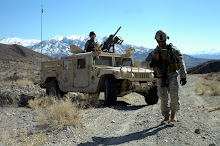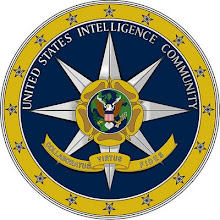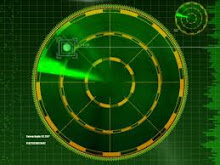By Steve Hammons
The term “anomalous cognition” has come to mean something similar to what has often been called the “sixth sense.” These concepts are also linked with names for this phenomena such as extrasensory perception (ESP) and remote viewing.
However, is it true that certain kinds of perception are actually “anomalous,” that is, unusual or out of the ordinary?
It may be that the sixth sense is actually a very natural, normal and common kind of perception that we all experience on a regular basis. We may not recognize it as such because we filter those perceptions through our conscious and logical thinking brain.
Or, maybe we just consider these perceptions as hunches, gut feelings, instincts or intuition that we may or may not pay much attention to.
It might be more accurate and constructive to call this kind of perception “alternative cognition” or “complementary cognition.” This is similar to ideas of alternative medicine and complementary medicine.
NORMAL AND NATURAL
We might think of alternative cognition or complementary cognition as just another perceptual resource to go along with our other five senses of sight, hearing, touch, taste and smell as well as our emotions, feelings, dreams, imaginations and thinking brain.
In fact, maybe we will discover that there are more than these modes of perception. Maybe we have the ability to perceive in ways that can be further identified and specified.
There are also joint perceptions that involve using more than one sense or perceptual resource simultaneously. Integrating our sixth sense with the other five and other inner experiences may also be helpful, as well as very natural and normal.
Complementary cognition is probably something all humans, and probably many animals, possess as a natural part of our awareness.
However, this does not mean that all of us utilize this kind of perception in equal measure.
For example, remote viewing refers to some specific methods developed by the U.S. military and intelligence communities in Project STAR GATE during the 1970s, ‘80s and ‘90s. People were selected to be remote viewers in these efforts because they were believed to have better than average or quite good abilities in this area.
These abilities were then scientifically tested, verified, measured and explored by Project STAR GATE personnel.
Are these skills based on elements like personal experiences, training and practice, genetics or psychological traits? All of these factors, and maybe more, probably play a part in the abilities of a particular person.
In addition, the purpose or importance of the alternative or complementary cognition experience might be an important factor. Is it being used as part of an important secret mission, for personal safety and survival, to find a missing child, to catch a dangerous criminal?
Would these situations somehow contribute to the availability or accuracy of complementary cognition experiences compared to a purpose that is less important?
LEADING-EDGE RESOURCE
As we continue to learn more about our sixth sense, ESP, remote viewing, anomalous cognition, alternative/complementary cognition or whatever we might choose to call it, we will probably find answers to these questions.
Scientific research during the Project STAR GATE years resulted in large amounts of useful data that continue to be very helpful in our understanding of this aspect of human consciousness.
In addition to the scientific exploration and measurement of this human ability, it was applied to operational activities involved with U.S. national security, often with significantly successful results.
In fact, a Navy SEAL officer suggested in a research paper for his studies at the Marine Corps War College that remote viewing can be an example of what he called “transcendent warfare.” He suggested that using state-of-the-art and leading-edge emerging knowledge about human consciousness can be an important part of U.S. national security activities.
Subsequent concepts that built on the SEAL officer’s idea of transcendent warfare included the term “transcendent power” which is complementary to diplomatic and military soft power, hard power and what has been called smart power.
Taking the transcendent power idea further, we might discover that it and complementary cognition can be applied to a wide range of efforts and goals including economic prosperity, scientific progress, medical discoveries, human development, international peace operations, resolution of social problems, natural resources conservation and many other important current challenges.
When we begin to understand that alternative and complementary cognition is a natural part being human, we may find that we can make accelerated progress on many levels.
skip to main |
skip to sidebar

In the past 30 days, readers from approximately 40 countries or territories using about 20 languages visited the Joint Recon Study Group site.

To see more articles, scroll down the right-side column.

Steve Hammons

Articles from the Joint Recon Study Group site and Transcendent TV & Media site are included.
The Joint Reconnaissance Study Group is the San Diego-based, combined-service/agency, research-and-activities team in my novels "Mission Into Light" and sequel "Light's Hand." This site contains information of interest to the JRSG.
Home page: Joint Recon Study Group site
Readers from around the world visit this site.

In the past 30 days, readers from approximately 40 countries or territories using about 20 languages visited the Joint Recon Study Group site.
April 2021 threat alert: ‘Force protection’ for our troops now the responsibility of all Americans
First responders must deal with society’s problems, shortcomings, injustices every day
Could some UFOs be linked to Native American 'white stone canoe' legends, stories?
Wildland firefighter basic training available at community colleges, tech schools, training centers
‘Boomer remover’ coronavirus is bigger threat to WWII generation that saved the world
‘Black swan’ events that aren’t: Coronavirus, climate emergency, unidentified aerial phenonema
Reagan’s complete 1987 UN message on ‘alien threat’ overlooked: Grave danger here, now
Was Reagan briefed about UFOs and original ‘Day the Earth Stood Still’ movie?
My military draft lottery number was #165 during final Vietnam War years
“Keep On The Sunny Side,” by The Whites, from movie O Brother, Where Art Thou?”
Living along Ohio River for centuries, Native Shawnee called it ‘Kiskepila Sepe’ – ‘Eagle River’
Native American words around us: States, towns, rivers, lakes, terrain, plants, animals, military
Athens County, Ohio, was key spot when colonists, Redcoats fought Shawnee in 1774 battle
1787 Northwest Ordinance set course for Ohio, Indiana, Illinois, Michigan, Wisconsin, Minnesota
Smallpox-tainted blankets were 1763 bioweapon on northern Appalachian Mountains frontier
Diana Krall performs “Maybe You’ll Be There" live in Paris with Paris Symphony Orchestra 2001.
Books to read in 2021? Novels "Mission Into Light" and the sequel "Light's Hand"
Novel excerpt: Renew, prepare America with ‘Urgent Response Group’ for teens, young adults
Diana Krall performs “I Get Along” live in Paris with Paris Symphony Orchestra 2001.
Steve Tyrell sings “Give Me the Simple Life.”
Diana Krall performs “Love Letters” live in Paris with Paris Symphony Orchestra 2001.
Visit the article archives!

To see more articles, scroll down the right-side column.
Novel "Mission Into Light" overview on Amazon
Novel "Light's Hand" overview on Amazon
Adventures of the Joint Recon Study Group: Overview and synopses of activities and operations
Key chapter overviews: Points of interest in the novel "Mission Into Light"
Key chapter overviews: Points of interest in the novel "Light's Hand"
Multimedia rights available
English and foreign-language book rights, audio book and e-book rights for "Mission Into Light" and "Light's Hand" are available. Movie and TV rights are available.
I'm seeking agent representation for these works and rights.
Please contact Steve Hammons for more information at hammons55@gmail.com.
Feature film screenplay
I completed a feature film screenplay in 2006 based on “Mission Into Light” and “Light’s Hand” combining key elements of both novels.
The screenplay takes audiences into the adventures and discoveries of the Joint Recon Study Group and the relationships among team members, friends and associates as they explore leading-edge research and emerging transcendent developments.
I'm seeking agent representation for this screenplay.
.........................
I also wrote a TV series pilot script based on "Mission Into Light" and "Light's Hand" story. I'm seeking agent representation this script.
About the Author

Steve Hammons
About the Author
I was born and raised in southwestern Ohio near the Kentucky and Indiana borders, then went to college at Ohio University in the southeastern Appalachian region of the state near West Virginia.
I graduated with a dual major in communication (journalism focus) and health education (psychology focus) with a minor in pre-law.
Ohio U. is home to the respected Scripps College of Communication and E.W. Scripps School of Journalism.
I also completed two graduate-level courses in guidance counseling theory and method at Ohio U.'s College of Education, School of Applied Behavioral Sciences and Educational Leadership.
At the end of my undergraduate education at Ohio University, I moved to the beautiful American Southwest where I applied my education, continual training and and ongoing experience to related professional fields such as health care, journalism and special research areas.
My novels "Mission Into Light" and the sequel "Light’s Hand" are available in e-book and 6"x9" paperback from most online booksellers worldwide.
Readers review metaphysical-military-intelligence adventure novel ‘Mission Into Light’
My articles on DoD CultureReady blog, Defense Language and National Security Education Office
Transcendent TV & Media site
Past articles: Scroll down the right-side column for more articles.

Articles from the Joint Recon Study Group site and Transcendent TV & Media site are included.































































































































































































